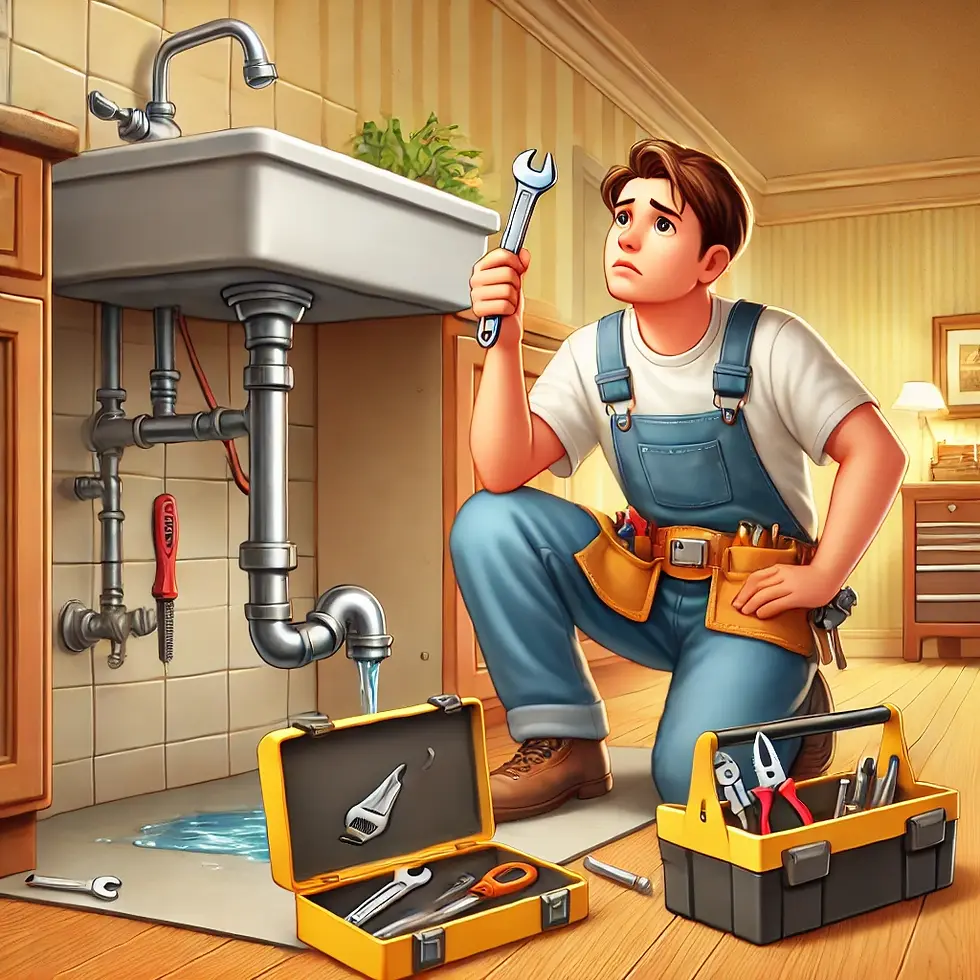Common Mistakes Homeowners Make When Repairing Their Homes
- William Washington
- Feb 21
- 3 min read
Home repairs are an essential part of homeownership, but many DIY enthusiasts and even some experienced homeowners make costly mistakes. These errors can lead to wasted time, additional expenses, or even unsafe living conditions. Here are some of the most common mistakes homeowners make when repairing their homes and how to avoid them.

1. Underestimating the Complexity of a Project
Many homeowners assume that certain repairs are easier than they actually are. For example, installing new flooring, electrical wiring, or plumbing fixtures may look simple in online tutorials but can quickly become overwhelming.
How to Avoid It:
✅ Research thoroughly before starting a project
✅ Watch multiple tutorials and read expert guides
✅ Know when to hire a professional
2. Using the Wrong Tools or Materials
Using improper tools or low-quality materials can lead to poor results, increased repair costs, and even safety hazards. For example, using the wrong type of paint for a bathroom can lead to mold issues due to moisture exposure.
How to Avoid It:
✅ Invest in high-quality materials that match the project’s needs
✅ Use the correct tools for precise and safe work
✅ Seek expert advice at home improvement stores
3. Ignoring Building Codes and Permits
Many home repairs require permits and adherence to building codes, especially when dealing with structural changes, electrical work, or plumbing. Ignoring these regulations can lead to fines, safety hazards, and problems when selling your home.
How to Avoid It:
✅ Check local building codes before starting any major project
✅ Apply for necessary permits if required
✅ Consult a professional if unsure about compliance
4. Overlooking Safety Precautions
Many homeowners fail to take proper safety precautions, leading to injuries or damage to their homes. This includes working without protective gear, ignoring electrical safety, or using unstable ladders.
How to Avoid It:
✅ Wear safety gear such as gloves, goggles, and masks
✅ Turn off power before doing electrical work
✅ Use stable ladders and have someone assist when working at heights
5. Rushing the Job
In an effort to complete repairs quickly, many homeowners cut corners, leading to poor workmanship and future issues. Skipping steps like proper surface preparation, drying times, or measurements can ruin a project.
How to Avoid It:
✅ Plan out the project timeline realistically
✅ Follow all steps, including preparation and drying times
✅ Double-check measurements before cutting materials
6. Neglecting Proper Surface Preparation
When painting walls, installing flooring, or sealing a surface, proper preparation is crucial. Skipping sanding, priming, or cleaning can result in peeling paint, uneven surfaces, or adhesive failures.
How to Avoid It:
✅ Clean, sand, and prime surfaces as needed
✅ Follow manufacturer instructions for materials
✅ Allow adequate drying time before moving to the next step
7. Choosing the Cheapest Option Over Quality
While saving money is important, choosing the cheapest materials or contractors can lead to frequent repairs and poor-quality work. Low-cost materials may wear out faster, and inexperienced contractors may make costly mistakes.
How to Avoid It:
✅ Research and invest in durable materials
✅ Get multiple quotes before hiring a contractor
✅ Consider long-term savings over upfront costs
8. Skipping Regular Maintenance
Many homeowners only fix issues when they become serious, leading to more expensive and complicated repairs. Regular maintenance prevents small problems from turning into costly disasters.
How to Avoid It:
✅ Inspect your home regularly for leaks, cracks, and wear
✅ Clean gutters, HVAC filters, and drains to prevent buildup
✅ Address minor issues before they worsen
9. Not Accounting for Hidden Costs
Many DIYers underestimate costs by failing to budget for unexpected expenses like additional materials, repairs for hidden damage, or the need for professional help.
How to Avoid It:
✅ Set aside extra funds for unexpected costs
✅ Inspect hidden areas (behind walls, under flooring) before starting
✅ Get professional opinions on major projects if needed
10. Taking on Too Many Projects at Once
Starting multiple repairs at the same time can leave your home in chaos and make it difficult to complete any project properly.
How to Avoid It:
✅ Prioritize repairs based on urgency and budget
✅ Complete one project before moving to the next
✅ Avoid overcommitting time and resources
Final Thoughts
Home repairs can improve your home’s value and functionality, but only if done correctly. Avoiding these common mistakes will save you time, money, and frustration while ensuring high-quality results. If you're unsure about a repair, don't hesitate to consult a licensed professional—sometimes, it’s the best way to protect your home and investment.
Planning a repair project? Take your time, use the right tools, and always prioritize safety and quality! 🏡🔨



Comments